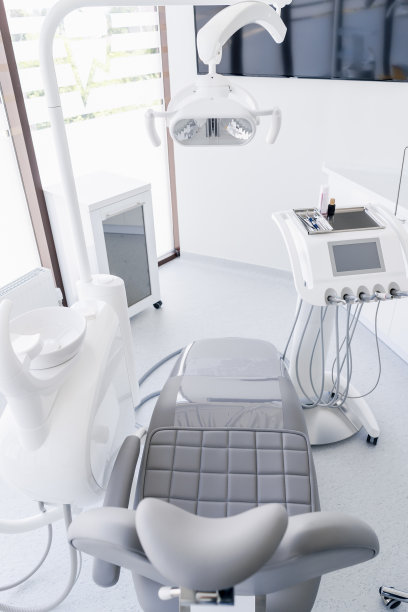Summary: Periodontal disease, a condition that affects the tissues surrounding the teeth, has significant implications for overall health beyond oral hygiene. This article explores the multifaceted impact of periodontal disease on systemic health, including its connections to cardiovascular disease, diabetes, and respiratory issues. It further discusses prevention strategies that encompass regular dental care, patient education, and lifestyle changes to mitigate risks. Through understanding and addressing these aspects, individuals can pave the way for a healthier future, where dental health is recognized as an integral part of overall well-being.
1. Connection Between Periodontal Disease and Cardiovascular Health

Research has shown a compelling link between periodontal disease and cardiovascular health. The bacteria responsible for gum disease can enter the bloodstream, leading to inflammation and contributing to atherosclerosis, or hardening of the arteries. This can increase the risk of heart attacks and strokes. Studies suggest that patients with periodontal disease are significantly more likely to suffer from heart-related issues compared to those without.
The inflammatory response triggered by gum disease can exacerbate existing cardiovascular conditions, making management more challenging. This bi-directional relationship emphasizes the importance of maintaining healthy gums as a preventive measure for heart health. It is crucial to recognize that oral health and heart health are intertwined, and neglecting one can significantly impact the other.
Preventative strategies that focus on proper oral hygiene and regular dental check-ups can be effective in reducing the risk of these cardiovascular complications. By addressing periodontal disease proactively, individuals can take crucial steps toward preserving their heart health.
2. The Impact of Periodontal Disease on Diabetes
Diabetes and periodontal disease share a complex interrelationship. Individuals with diabetes are at a heightened risk for gum disease due to their bodys decreased ability to fight infections. Moreover, periodontal disease can negatively affect blood glucose control, complicating diabetes management. In fact, studies show that improving periodontal health can lead to better glycemic control in diabetic patients.
The systemic inflammation caused by gum disease may contribute to insulin resistance, making it more difficult for diabetes patients to regulate their blood sugar levels. This dual effect creates a cycle that necessitates the integration of oral health into diabetes treatment plans. Proper management of periodontal health is therefore crucial for individuals living with diabetes.
Employing effective prevention strategies such as consistent dental cleanings and at-home oral care can significantly reduce the incidence and severity of periodontal disease in diabetic patients. Focusing on both oral hygiene and blood sugar control provides a holistic approach to better health outcomes.
3. Periodontal Disease and Respiratory Health Risks
The relationship between periodontal disease and respiratory health is often overlooked, yet it holds significant implications. Bacteria from infected gums can be aspirated into the lungs, potentially causing respiratory conditions such as pneumonia and chronic obstructive pulmonary disease (COPD). This risk is particularly pronounced in individuals with pre-existing respiratory issues.
Furthermore, periodontal disease can exacerbate existing lung conditions, leading to increased hospitalizations and healthcare costs. Studies indicate that individuals with poor oral health have higher rates of respiratory infections, highlighting the need for preventive dental care as part of respiratory health management.
To mitigate these risks, individuals are encouraged to prioritize oral health as part of their overall health strategy. Regular dental visits and effective oral hygiene practices not only improve gum health but also contribute to respiratory wellness by reducing the bacterial load in the oral cavity.
4. Prevention Strategies for a Healthier Future
Preventive strategies are essential for minimizing the risk of periodontal disease and its systemic effects. These strategies include routine dental check-ups, professional cleanings, and personalized oral hygiene practices. Dental professionals play a critical role in educating patients about the connections between oral health and overall health, empowering them to take proactive measures.
Additionally, lifestyle choices such as a balanced diet, regular exercise, and smoking cessation can significantly impact periodontal health. Individuals who adopt healthier lifestyles are less likely to suffer from periodontal disease, demonstrating the importance of holistic health approaches.
Community awareness programs can also foster a greater understanding of the importance of oral health in overall well-being. By investing in education and preventive efforts, society can improve health outcomes and reduce the burden of chronic diseases associated with periodontal illness.
Summary:
The exploration of the links between periodontal disease and systemic health underscores its significant impact on conditions such as cardiovascular disease, diabetes, and respiratory health. Acknowledging these connections is crucial for effective health management.
By implementing preventive strategies and enhancing awareness about oral health, individuals can contribute to a healthier future, marking the importance of dental hygiene in overall well-being.
This article is compiled by Vickong Dental and the content is for reference only
Vickong Dental
Vickong Dental is a large medical group established in Hong Kong in 2008 by professors from well-known medical universities in Guangdong and Hong Kong, as well as medical doctors from key national '985' universities (including Master's supervisors and senior professors). The chain of branches brings together expert dentists with PhDs and Master's degrees from Hong Kong and Mainland China, committed to providing high-quality dental treatment.
"Vickong Dental Practices the University Motto of 'Healing and Serving Society,' with a Stable Operation for Sixteen Years. It Has Been honored with Hong Kong Enterprise Leaders's Choice,' and is a Global Trusted Implant Center for the Nobel Implant System. Recommended by Hong Kong Metro Broadcast and Guangdong Television, it Serves Customers from Over Thirty Countries and Regions, Gaining the Trust and Favor of Citizens from the Guangdong-Hong Kong-Macau Greater Bay Area and Surrounding Cities.

Thousands of customers' unanimous praise
The most recognized and highly recommended dental service by customers in the Guangdong-Hong Kong-Macau Greater Bay Area
We Ensure You Receive Detailed Care and Attention Here
Hong Kong standards, Shenzhen prices, Your Trusted English-speaking dentists

Vickong Dental Medical-Grade Instrument Disinfection Process
Vickong Dental Medical-Grade Instrument Disinfection Process

Vickong Dental Chain: A Warm and Comfortable Environment for Treatment






Appointment Hours

Q&A
Why choose Vickong Dental?
Vickong Dental practices the university motto 「Medicine to Benefit Society」, with each branch bringing together highly qualified dentists with doctoral and master’s degrees from Hong Kong and the Mainland, and has maintained seventeen years of steady operation。Recipient of 「2024 Hong Kong Enterprise Leaders Brand」, 「2025 Hong Kong Enterprise Leaders Brand」, a Nobel Biocare Global Trusted Implant Center, and a brand recommended by Metro Radio Hong Kong and Guangdong TV。
To date, we have served customers from more than thirty countries and regions,earning exceptionally high word-of-mouth recognition and trusted recommendations from residents across the Guangdong-Hong Kong-Macao Greater Bay Area and surrounding cities
We have eight major branches in Zhuhai、Shenzhen,and a consultation and service assurance center in Hong Kong,so you can book a free consultation at any time for any questions,which is very reassuring.
If I do not accept the quotation after the CT scan, will I be charged??
No! As long as the actual treatment has not started, you will not be charged any fees.
Will there be any additional charges during the treatment process?
No, there won’t be any additional charges. Before treatment begins, we will clearly explain the treatment plan and its corresponding fees. Only after the patient agrees and signs the consent form will we proceed with the dental service.
Can I pay in Hong Kong dollars?
Yes. Vickong Dental accepts payment in Hong Kong dollars. The amount will be converted based on the exchange rate of the day, and the applicable rate will be clearly communicated to you in advance.
Can I reschedule my appointment at any time?
Yes. Please contact us via **WeChat** or **WhatsApp** as early as possible, providing your original appointment time and details, along with your preferred new date and time slot for rescheduling.













